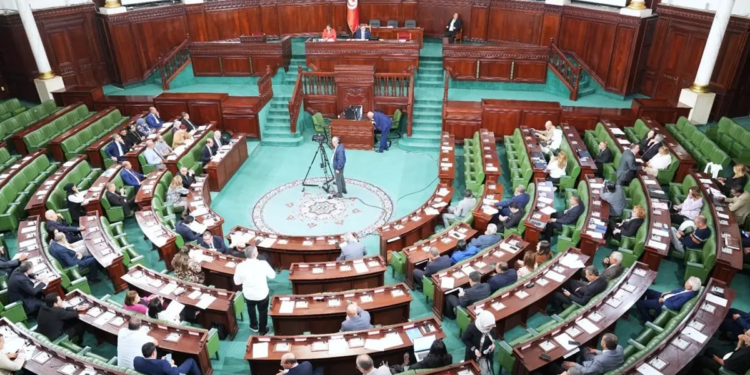The Tunisian Parliament, bringing together the Assembly of People’s Representatives and the National Council of Regions and Districts, began a joint plenary session this Wednesday devoted to the presentation and examination of the draft finance law and the draft economic budget for the year 2026. The inaugural session was held in the presence of the Head of Government, Sarra Zaafrani Zenzeri, as well as several members of the government.
A budget debate extended until November 23
The work of the two chambers will continue until November 23, and will focus on the missions and budgets of the various ministries and public establishments. This session marks a decisive step in the preparation of the first finance law backed by the 2026-2030 Development Plan, currently being finalized.
In his opening speech, Brahim Bouderbala, president of the Assembly of People’s Representatives, stressed the need to make the 2026 budget an instrument of social justice and economic recovery.
For his part, Imed Derbali, president of the National Council of Regions and Districts, highlighted the social and territorial dimension of the budget project. According to him, the 2026 budget is the first to integrate the objectives of the 2026-2030 Development Plan, in a logic of decentralization and rehabilitation of marginalized regions.
The government is aiming for a balance between equity and growth
In her official statement, Head of Government Sarra Zaafrani Zenzeri specified that the 2026 finance bill is part of a participatory approach and reflects the strategic orientations of the 2026-2030 Development Plan.
She insisted that this plan breaks with previous policies which, according to her, “did not achieve justice and equity, which are the foundations of national stability”.
The 2026 budget will coincide with the first year of application of the five-year plan, presented as a major turning point in establishing a sustainable balance between social justice and economic growth.
Read also








